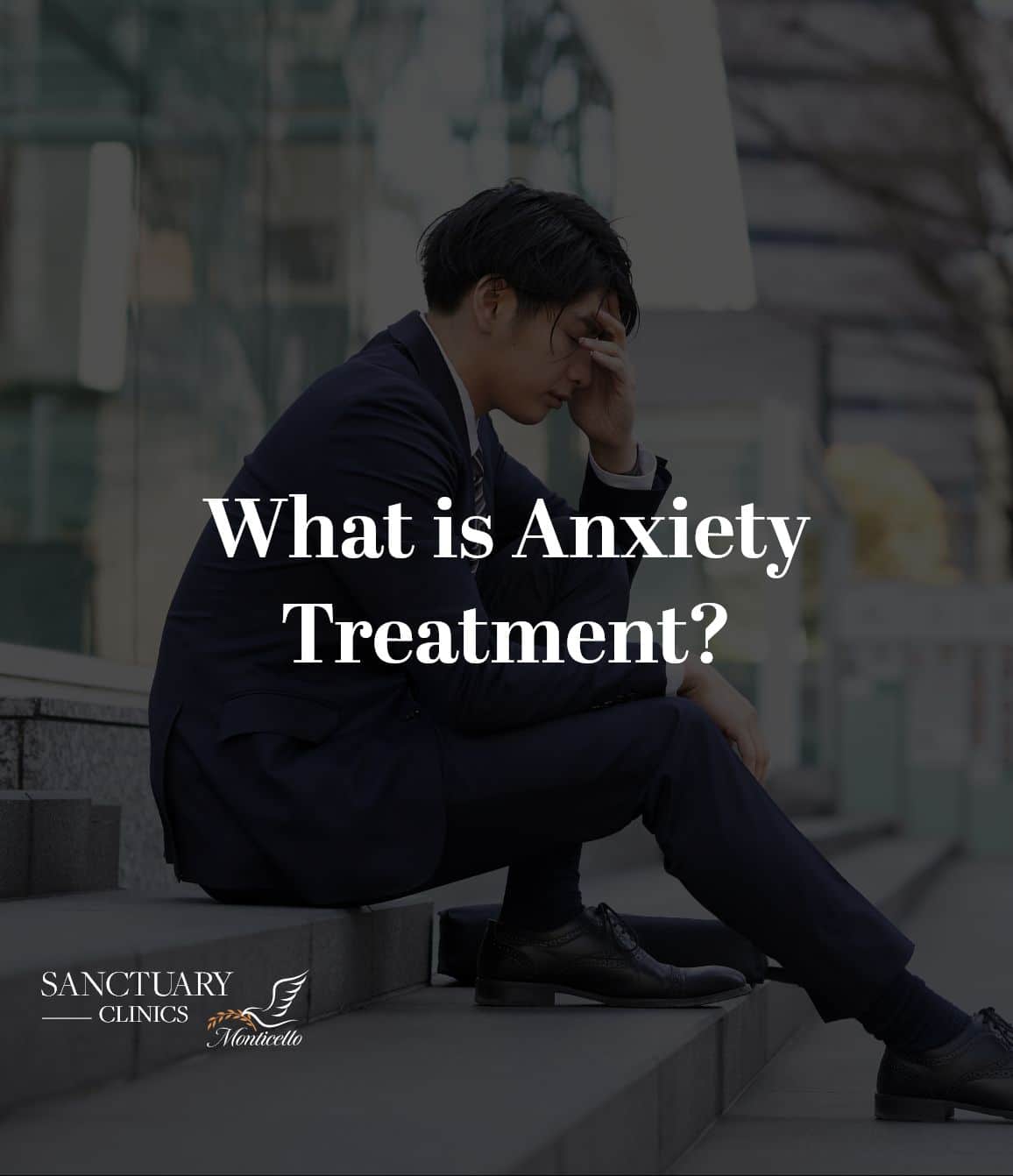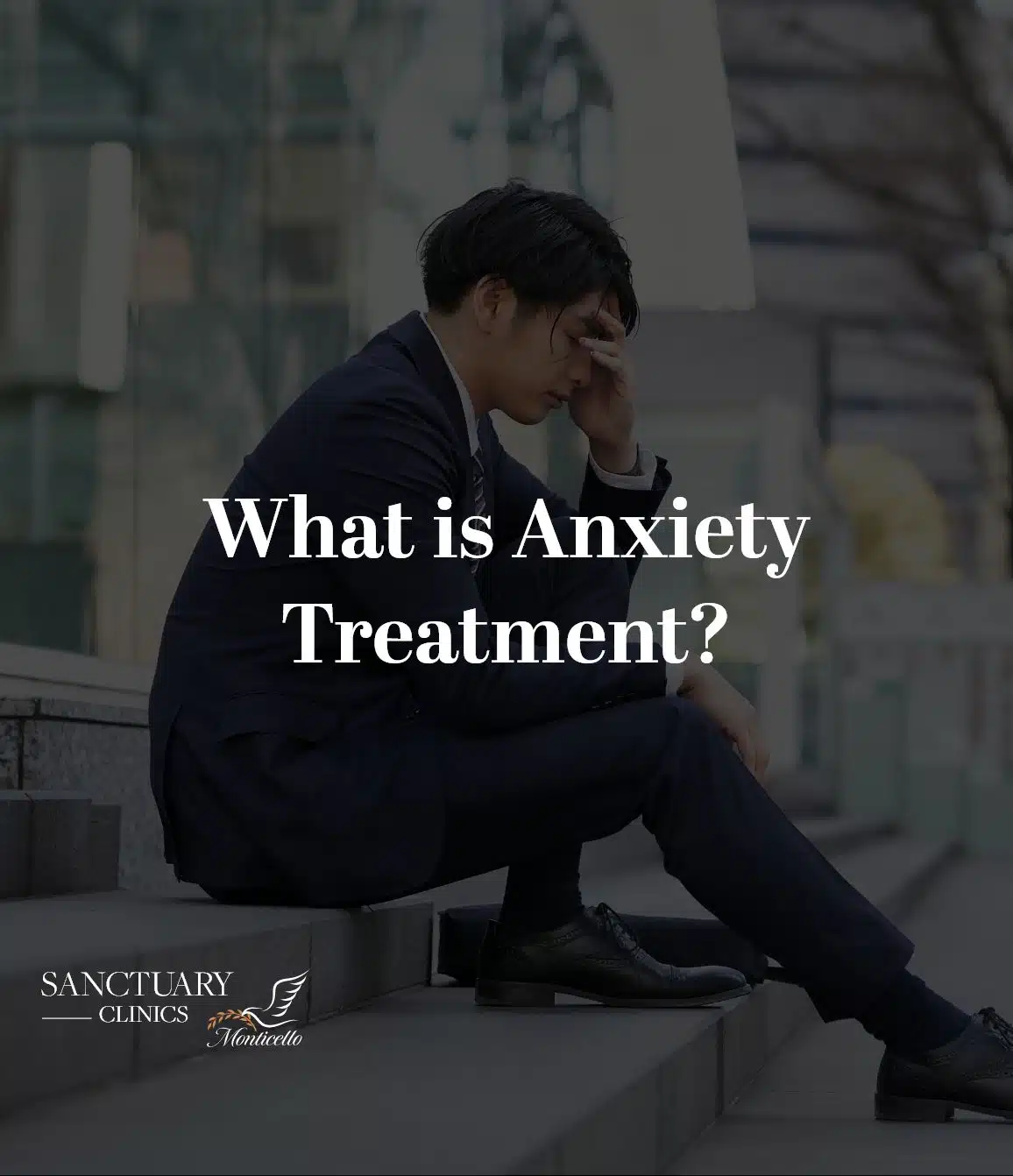

Contents
What is Anxiety Treatment?
Anxiety treatment is a therapy service for anxiety disorders. Anxiety disorders if not treated can cause mental health issues. Mental health issues like Anxiety is a condition which can be treated using a variety of approaches. While some people may benefit from medication, others may find psychotherapy and other non-medical treatments are more effective.
Additionally, some people may choose to seek out specialized anxiety treatment centers, which can offer comprehensive and individualized care.
How effective are anxiety
treatment centers?
How effective are anxiety treatment centers?
Research has shown anxiety treatment centers can be highly effective for many people. A study published in the Journal of Anxiety Disorders found intensive, specialized treatment programs can lead to significant reductions in anxiety symptoms.
Participants in the study experienced a 62% reduction in anxiety symptoms after completing an intensive treatment program.
Types of anxiety treatment centers
There are several different types of anxiety treatment centers and the most appropriate service will depend on the person’s specific symptoms, history, and preferences. Some of the most used effective treatments include:
Cognitive-behavioral therapy (CBT)
This type of therapy involves identifying and challenging negative thought patterns and behaviors which contribute to anxiety. By changing these patterns, people can learn to manage their anxiety more effectively.
Exposure therapy
This treatment involves gradually exposing people to feared situations or objects in a controlled environment, allowing them to learn these situations are not as dangerous as they may have previously believed.
Medication management
Several types of medication can be effective in treating anxiety, including antidepressants, benzodiazepines, and beta-blockers.
Mindfulness-based stress reduction
This approach involves learning to focus on the present moment and accepting your thoughts and feelings without judgment.
Anxiety treatment without medication
While medication can be helpful for some people with anxiety, it is not the only treatment option. In fact, many people find non-medical approaches are just as effective, if not more so. Some of the most effective non-medical anxiety treatments include those listed above: Cognitive-behavioral therapy, exposure therapy, and mindfulness-based stress reduction.
How does anxiety treatment work?
The process of anxiety treatment can vary depending on the specific approach being used. In general, however, anxiety treatment typically involves several steps:
Assessment
This involves the psychiatrist or therapist gathering information about the person’s symptoms, history, and other relevant factors.
Treatment planning
Based on the assessment, the therapist or clinician will develop a treatment plan which outlines specific goals and objectives.
Treatment implementation
This phase involves implementing the chosen treatment approach, whether it is medication, therapy, or some combination of both.
Follow-up
Finally, the patient will typically receive follow-up care to ensure the treatment is working effectively and to make any necessary adjustments.
The benefits of anxiety treatment centers
Anxiety treatment centers offer several benefits for individuals struggling with anxiety.
- These facilities provide specialized care which is tailored to the client’s specific needs, which can be particularly helpful for people with complex or severe anxiety symptoms. Additionally, anxiety treatment centers typically offer a range of services and therapies, which can improve the person’s chances of achieving long-term success.
- Anxiety treatment centers also provide a supportive environment where people can connect with others who are going through similar struggles.
- This sense of community can be incredibly powerful, as it can help people feel less alone and more understood. Anxiety treatment centers also provide a safe and confidential space for people to explore their thoughts and feelings, which can be difficult to do in other settings.
Sanctuary Clinics anxiety treatment
facility in Florida
Sanctuary Clinics anxiety treatment facility in Florida
Sanctuary Clinics offers Christ-centered intensive treatment in a community setting. This program offers a range of evidence-based treatments, including cognitive-behavioral therapy (CBT), exposure therapy, and medication management. They also provide group therapy, mindfulness-based stress reduction, and other complementary therapies.
Their treatment team and licensed therapists specialize in co-occurring disorders and conditions. They provide compassionate and personalized treatment and relapse prevention which facilitates total healing and recovery.
Anxiety treatment center FAQS
Can anxiety be cured?
While anxiety disorders can be treated effectively, there is no single cure for anxiety. However, with proper treatment and ongoing management, many people can experience significant relief from their symptoms and improve their overall quality of life.
How long does therapy for anxiety take to work?
The length of time it takes for therapy to work for anxiety can vary depending on several factors, such as the severity of symptoms, the type of therapy being used, and the person's level of commitment to the therapy process.
Therapy for anxiety is not a quick fix, and it may take several weeks or even months to see significant improvement.
What is the first line of treatment for anxiety?
The first line of treatment for anxiety typically involves psychotherapy and/or medication. Cognitive-behavioral therapy (CBT) is a commonly used type of psychotherapy.
Exposure therapy and mindfulness-based therapy are also used.
What are signs of high anxiety?
Anxiety is a normal and natural response to stress, but it can become problematic when it is excessive or interferes with daily functioning. Some common signs of high anxiety include:
- Excessive worry: This is when a person worries excessively about things and events in their everyday life. They may worry about things that are unlikely to happen or worry about things they cannot control.
- Irritability: A person with high anxiety may be easily agitated or irritated. They may feel on edge or have a short fuse
- Difficulty concentrating: Anxiety can make it difficult to focus on tasks or to concentrate for extended periods of time.
- Physical symptoms: Anxiety can cause physical symptoms such as muscle tension, headaches, stomach upset, sweating, and rapid heartbeat.
- Avoidance behavior: A person with high anxiety may avoid situations or activities which they perceive as stressful or anxiety-provoking.
- Sleep disturbances: Anxiety can interfere with sleep, causing difficulty falling asleep, staying asleep, or waking up too early.
- Panic attacks: Panic attacks are sudden and intense episodes of fear or discomfort which are accompanied by physical symptoms such as chest pain, shortness of breath, and dizziness.
It is important to note everyone experiences anxiety differently, and not everyone with anxiety will experience all of these symptoms.
If you are experiencing any of these symptoms and they are interfering with your daily life, it may be helpful to talk to a mental health professional for support and guidance.




